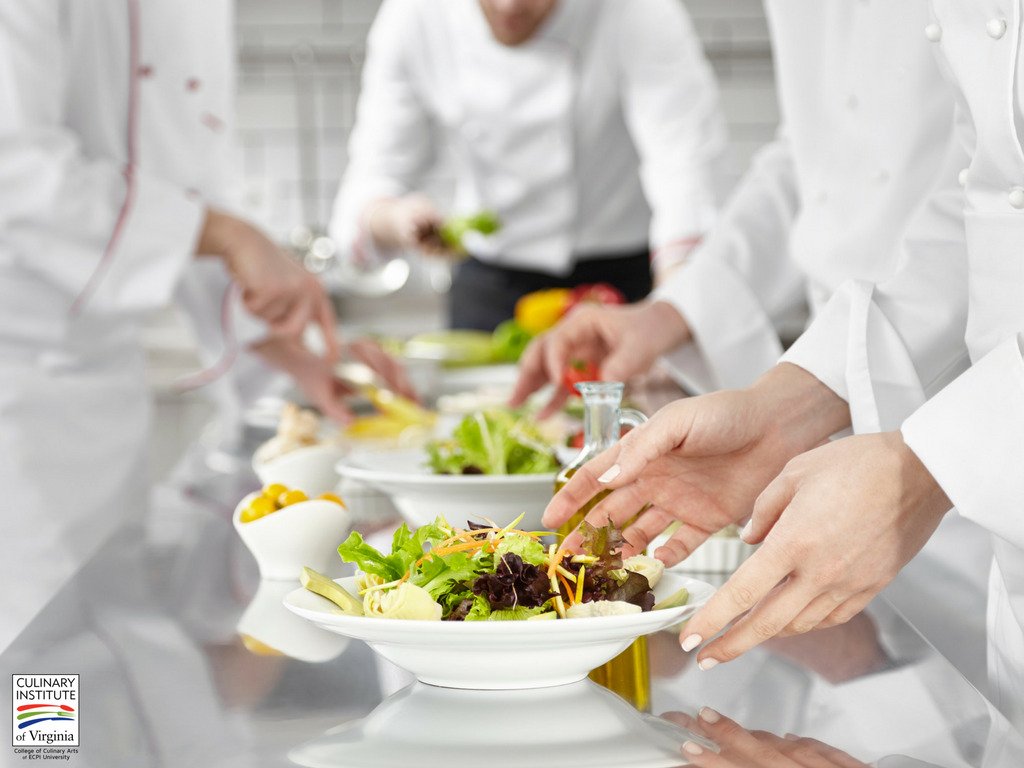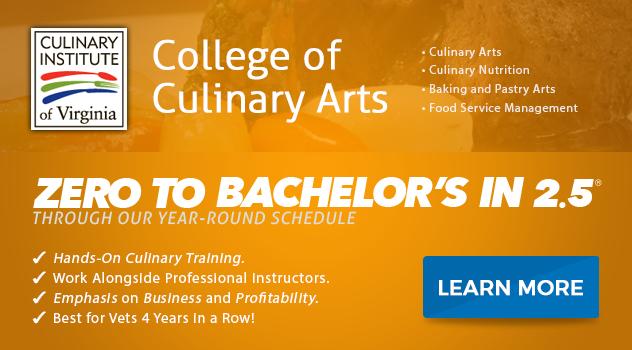I Want to Learn How to Be a Chef: Taking the First Step
There is always something good cooking in the professional kitchen. Whether it is a hot fondue, savory ragu, or souped up Chateau Briand, it smells like success. Chefs who have the right culinary training under their toque can write their own ticket to the future as they create and construct culinary creations that will have the customers asking for seconds each time they pull up a seat.
Professional chefs like to be the best and everyone wants to work their way to the top of the club in the kitchen. Chefs who command higher salaries have a solid combination of formal educational training that serves as a rock solid foundation when they enter the workforce. It's this educational foundation earned in the classroom of a culinary arts program that makes it possible for some chefs to create the experiments that turn into masterpieces.
Setting the Table for Success
A formal education in culinary arts teaches chefs the ins and outs of the kitchen. Instructors teach students the language of the kitchen including culinary terms and the ways terminology is used, to knife skills and the best ways to slice, dice, and fillet the path to the head chef's office.
Some of the most important skills chefs learn during their time enrolled in a culinary arts program are related to personnel and restaurant management. These critical skills are essential for professional chefs to practice and master prior to graduation. In fact, those chefs who have a solid understanding of how to manage a restaurant and the people that are required to cook the food and serve the dishes have a significant advantage over those who don't.
Managing the Bottom Line
Formal culinary training makes it possible to optimize kitchen performance and streamline operations. Indeed, these skills are equally as important as knowing how to mix and measure everything to perfect proportions. Knowing how to account for every ounce, every penny, and every person on the roster is crucial in an industry that balances on a knife's edge of thin margins and strict customer expectations. Culinary programs also teach chefs the best methods of trimming their budgets and staffing their restaurants. This reduces food waste, reinforces quality standards, and ensures that each customer receives the dish they ordered.
These are definitely lessons that are better learned in the classroom than when everything is on the line in a professional restaurant. The pennies saved can add up to dollars earned very quickly and provide chefs the financial leverage they need to hire extra staff, purchase new equipment, and expand their menu offerings to meet changes in customer tastes and expectations.
In the highly competitive restaurant industry, the restaurants that rise to the top are those that are run like a Swiss watch. Formal culinary training is provided by real-world chefs who know what works, what doesn't, and what lessons students need to master so that their restaurant can hop over the hurtles that are bound to rise up along the way.
On-the-Job Training is an Expensive Way to Learn
For starters, restaurants want to hire chefs who know what they are doing in the kitchen. Chefs with formal training are less prone to generating food waste and other habits that can cost the restaurant money. Moreover, restaurants have a reputation to uphold and they want chefs who know how to create the dishes their customers crave. Quality is the cornerstone of success in the culinary industry and knowing how to generate consistent quality with every meal is a benefit to the restaurant. The cost of training a chef who has to learn along the way adds up quickly and sometimes isn’t in a restaurant’s budget.
Are you Ready to take that First Step?
If you feel the world of culinary arts is calling you, you might be interested in earning an Associate of Applied Science in Culinary Arts. ECPI University’s Culinary Institute of Virginia offers this program at an accelerated rate. For more information about this exciting degree, connect with a knowledgeable admissions representative today.
It could be the Best Decision You Ever Make!
DISCLAIMER – ECPI University makes no claim, warranty, or guarantee as to actual employability or earning potential to current, past or future students or graduates of any educational program we offer. The ECPI University website is published for informational purposes only. Every effort is made to ensure the accuracy of information contained on the ECPI.edu domain; however, no warranty of accuracy is made. No contractual rights, either expressed or implied, are created by its content.
Gainful Employment Information – Culinary Arts - Associate’s
For more information about ECPI University or any of our programs click here: http://www.ecpi.edu/ or http://ow.ly/Ca1ya.





